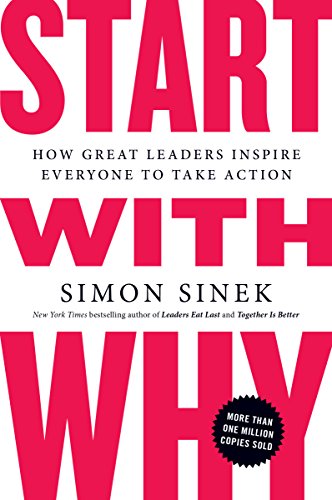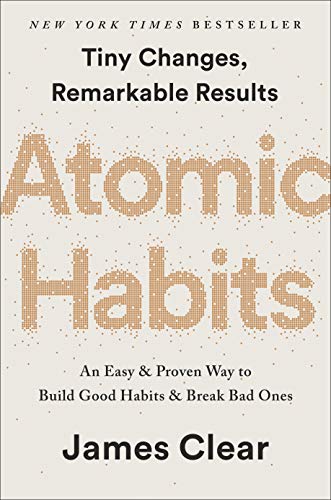“We must be willing to get rid of the life we’ve planned, so as to have the life that is waiting for us. The old skin has to be shed before the new one can come.”
In the US, we often associate new beginnings with the new year - January 1st. We make resolutions, we work on them, and some of us break them only to feel terrible about ourselves. No, this post is not about New Year’s resolutions. It’s about making new beginnings. We make new beginnings every day. Often multiple times a day.
Ever notice that for Nature to take on something new, it first sheds something old? The Sun rises and creates a new day as night fades into dawn. Every season brings with it a new set of weather phenomena, replacing the old for another year. Spring breathes new life into plants and trees. In Autumn, dead leaves and dry twigs are shed – and the trees are ready to welcome new leaves and branches. If we were to take on something new, do we stop to take stock of the situation, and figure out what we might need to get rid of to make room for it?
Our Current State
Some of us often have packed days, full of activities, to-do lists, responsibilities, chores, tasks at work, and social obligations. We are constantly in the "doing" phase most of our waking moments. (See my previous blog post that talks about being vs. doing) We live as if there are more than 24 hours in a day and tend to live large, live to the fullest, and live beyond our means. In what ways? We overdo in so many departments - eat too much, work too much, party too much, surf the web too much - so much so that it eats into our sleep and then we sleep too little. Some of us oversleep on the weekends thinking we can make up for the lost hours. It doesn't quite work that way. We do need to get reasonable hours of good quality sleep every day, for our bodies and brains to function optimally.
Our brains can get overworked and may be unable to process and make sense of all the information that's being thrown at us every second of the day (and night). Life is more complex than ever. Work may not just be 9 to 5 anymore. Children don't just grow up on their own with minimal supervision anymore - there is an expectation (and perhaps need) of greater parental involvement in every little aspect of their childhood and growth. The omnipresence of social media means our social interactions have become more complex and at the same time, somehow less meaningful than they used to be. We mindlessly like posts, add hug and kiss emojis to texts messages, and say that we are LOLing without even so much as a hint of a smile on our faces. Our brains and minds can go into overdrive, and finally out of fatigue, just get numb to anything new or exciting. Many of us end up just getting by in life, instead of thriving. We go through the motions without much joy and excitement.
Do you experience this? Do you feel like you can't add one more thing to your already overflowing plate? If so, here are some things you can try:
· To take on or start something new, make space by getting rid of something old - old in this instance signifies anything that doesn't serve you anymore or in fact, might hinder your progress. This includes both material and non-material clutter.
· Fierce prioritization - In this seemingly limitless world, we still are not able to physically, mentally, intellectually, energetically, and time-wise, function in a limitless manner. Remember we took steps in March to prioritize in some other areas? You can apply those steps here too to figure out what truly matters and what truly deserves your time, energy, effort, and so on.
Where do you start?
“Some of us think holding on makes us strong, but sometimes it is letting go.””
Reflection: Sometimes it seems like there are just too many things to deal with, or the priorities are competing and difficult to cull. Here is an exercise with a set of questions to help you reflect and act on it. Some questions may or may not apply to you or your life. If not, simply file them away for possible later use.
Exercise:
· Take stock of the situation - What do I really want? What do I want to achieve?
Have more time in the day to relax or do fun things or spend time with your family? Have more money to be able to go out with friends, save for retirement, travel the world? Have energy left to do something meaningful for yourself like, say, learning a new skill by reducing the number of tasks, chores, work-related extra activities that you take home every night?
“When we know our “why”, it might be easier to make changes, stay the course, make the difficult right decisions. ”
· Why do I want this?
As we have learned in the previous blog posts, if we know the "why" behind certain decisions or actions, then we are more likely to stick to them and/or be on board than if they were made for us (our parents, spouse, boss, etc.)
· Even harder to figure out is what do I really need?
Can you be honest with yourself and find out what it is that you need the most at this time? Sometimes what we want ("CAKE!!") and what we need (healthy eating to lose excess weight or fight diabetes) are two different things. So ask this question another way: What's going to be in my best interest?
· What's in the way?
- Friends? Especially those that expect you to go to a movie without considering your schedule.
- Coworkers? Especially those who bring donuts (or cupcakes or pastries) and potentially derail you from your healthy eating lifestyle?
- Bad habits? Thoughts? Dreams? Wishes? Behaviors?
- Apathy? Being overwhelmed?
- Material possessions? - A thousand clothes and yet, nothing to wear?
· What's at dissonance?
What's not working? What's leaving you mentally exhausted, unfulfilled, unsatisfied with your life in general and with this situation in particular - time, money, energy, etc.?
· What must go?
Sometimes it is as easy as "This is not working, therefore, this must go" and that's the end of the story. Sometimes, it's not so black and white - you still have to work on those extra tasks and bring them home every night, or spend money on certain things like high speed internet if you are working from home part of the time. So the answer to this question can come from answering or listing what's extraneous and can afford to go.
· When it leaves, how will I feel?
Joy, sorrow, anxiety, emptiness, fear of the unknown? Both animate and inanimate objects have a tendency to attract us and we get attached to them. Are there people in your life who consistently suck out your positive energy when you are trying to keep your chin up? Or friends who always seem to be making plans and dragging you along even if you had committed to piano practice that evening? Or do you always seem to spend money on the “wrong things”, like going to expensive restaurants when you are trying to save money for an emergency fund?
· Why do I care?
Being aware of how we might feel in losing our possessions will prepare us to deal with the feelings - hopefully, temporarily. This will also save you from sliding into regret, or later adding that possession back into ownership and stalling the process.
· When will I do this?
Commit to a date on your calendar to doing this exercise and the act of letting go. No time like the present. Schedule it!
Tips:
· Letting go of anything is not an easy task. By no means am I minimizing the pain or sorrow you'd feel of losing that which you are attached to. Try these two concepts from Marie Kondo's book about tidying up: When you are going through your list of what you want to keep and what must go, ask yourself, "Does this bring me joy?" If the answer is yes, keep it. If the answer is no, let go. Then, thank your old possessions for serving you and for having been useful, taking care of you, etc. before you let go of them.
This technique works for feelings or non-physical things as well. For example, while letting go of a fear, ask yourself: Does this still serve me and/or protect me? If it doesn’t, thank that fear for having protected you up until now. If you are mourning a death or loss, you might ask yourself: Who is it helping for you to hold on to this feeling? If it doesn’t help you, you might think of honoring the departed with an internal ceremony or celebration, and moving on.
· Another book that comes to mind is Managing Transitions by William Bridges. He defines change as something external to us, something physical, an event - for example, the day the baby was born, an acquisition of a company, date the divorce was finalized, the day grandma died, etc. Often, we don’t have control over these events. On the other hand, transition is something that happens internal to us and typically starts with an ending - the new parents don't have the freedom to party all night long anymore, the company ceases to be its own entity, the marriage is dissolved and is not an institution or a relationship anymore, grandma is not around anymore, etc. Even though the date of the event is decided, how we react to it and accept or come to terms with the new beginning or new reality depends on each of us. Some of us might take to the new reality quickly, and others might need weeks or months or even years to recover from the change. When we understand and accept that transitions are internal, it helps us to take them in stride.
Success Check: How do you know you nailed it? This one's easy! Well, relatively. If it's material possessions that you got rid of, you will have more space or your place will look tidy and neat and clean; if it's activities, then more time; if expenses, then more money; and if extra work, chores or activities then more energy. You get the gist. If it is non-material possessions or feelings you were dealing with, you might feel lighter because you won’t have sorrow or negativity weighing you down and you might feel hopeful because you have let go of your fear.
So what do you have more of now as a result?
Challenge: We need to keep doing this activity periodically to make sure old thinking patterns don’t resurface and to address new undesirable thinking patterns. You may see incremental results over time, or you may have a breakthrough and see results all at once. To help you stay on track, ask yourself:
· How can I make this reflection process a regular occurrence? A habit?
· How often will I undertake this exercise? Schedule it!
Share in comments below:
· What are you letting go?
· What are you making space for? With?
· How often will you check?
· What tool/s is/are your favorite? What else do you use or practice?
Sneak Peek: Next week, we will look into another aspect of new beginnings - the new beginnings that go dead or disappear even before they start. Curious what this is about? Come back here next week!
“New beginnings are often disguised as painful endings.”












